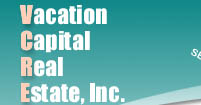Everything
that can be insured must be insured, so this should not be any
surprise to you. Naturally, you will need homeowners insurance
for your new vacation
home , but perhaps not the kind you're accustomed to purchasing.
Most standard policies exclude the use of the home for short-term
rental. When contacting insurance companies, make certain that
you specify that your policy needs to be for an income producing,
short-term rental vacation
home and not just a "second home". Because it is
a specific type of insurance, you may find that your provider
does not offer it.
Heather
Durtche-Goodall, of Florida Chartered Insurance Group, Inc., describes
their policy, which is offered specifically for short-term rental
homeowners, as being composed of six parts: dwelling, other structures,
personal property, loss of use (covers rental income), liability,
and medical payments (covers tenant injury claims). Most short-term
rental management
companies will also recommend that you add at least $500,000
liability coverage to your homeowners insurance, just to be safe.
Usually, the company that services your mortgage
will pay the yearly homeowners insurance premium. They will then
divide that yearly total premium into equal monthly amounts and
add it to your principle, interest, and tax
payment. Typically, homeowners insurance will add an average of
$45 to $60 to your monthly payment, depending on the value of
your home, your deductibles, and any additional coverage you may
have selected. You may instead opt to pay the yearly amount in
one payment directly to the insurance company.
If
you build a home which will be completed and delivered during
hurricane season, June 1- November 30, you would be wise to secure
your homeowners insurance prior to closing. Why? If there is a
hurricane within a certain "box", or area, approaching
Florida, insurance companies suspend writing new homeowner policies.
If you take the policy out in advance, it will automatically go
into effect at closing.




